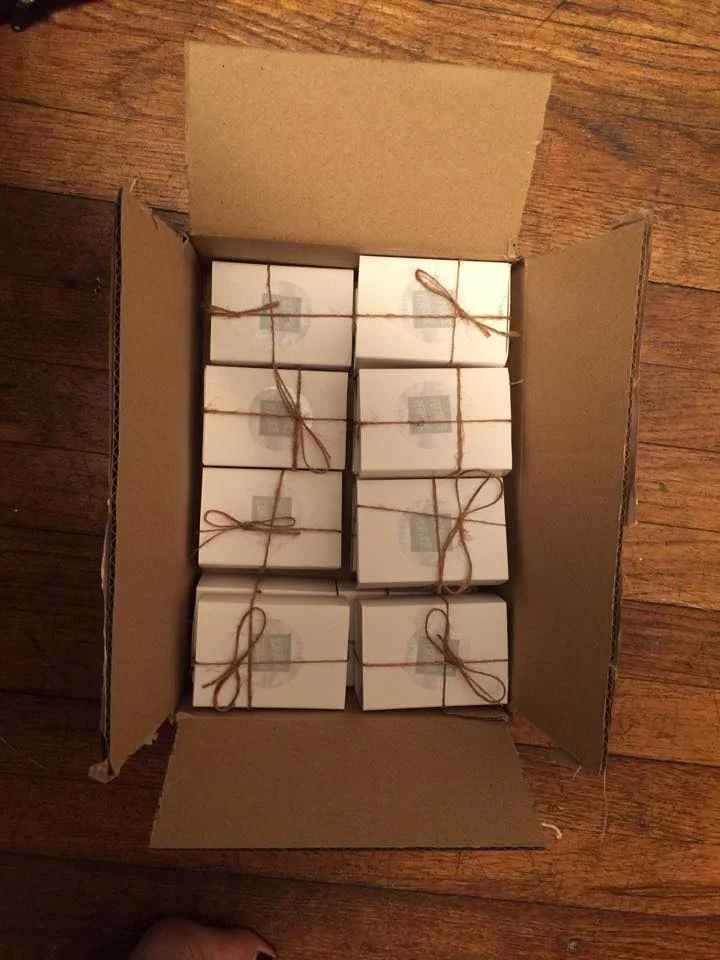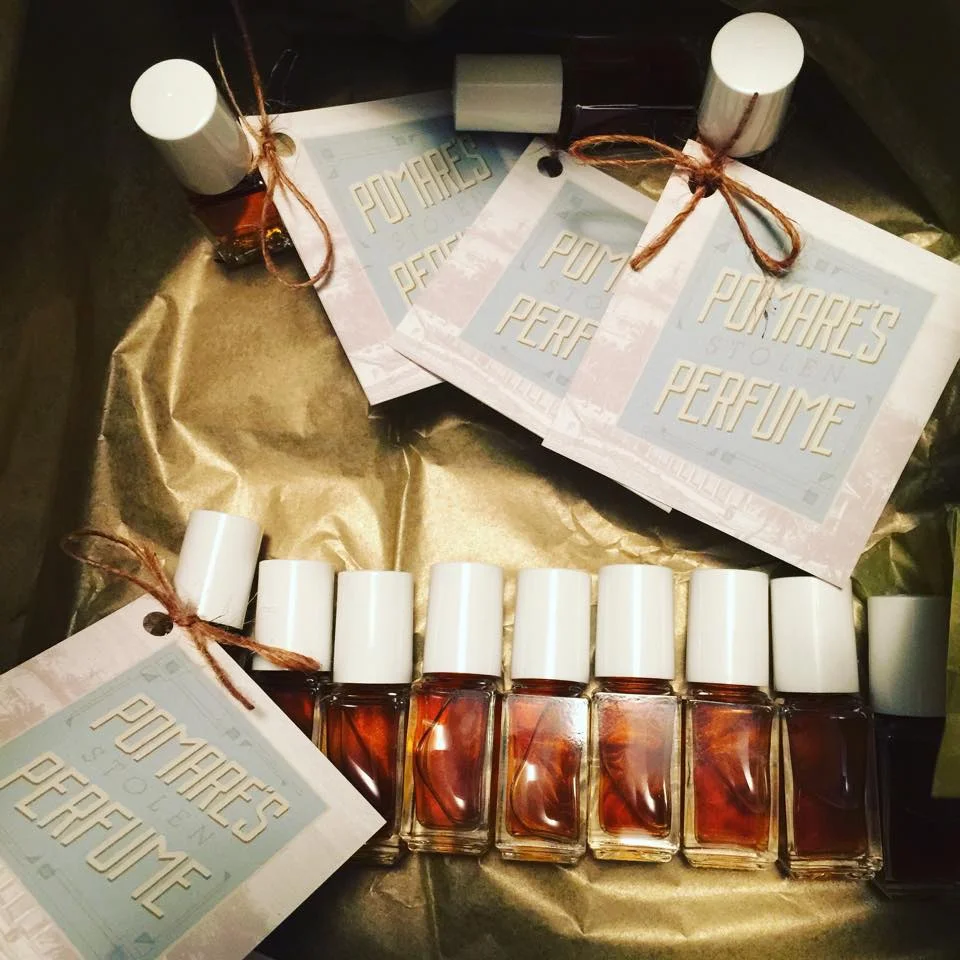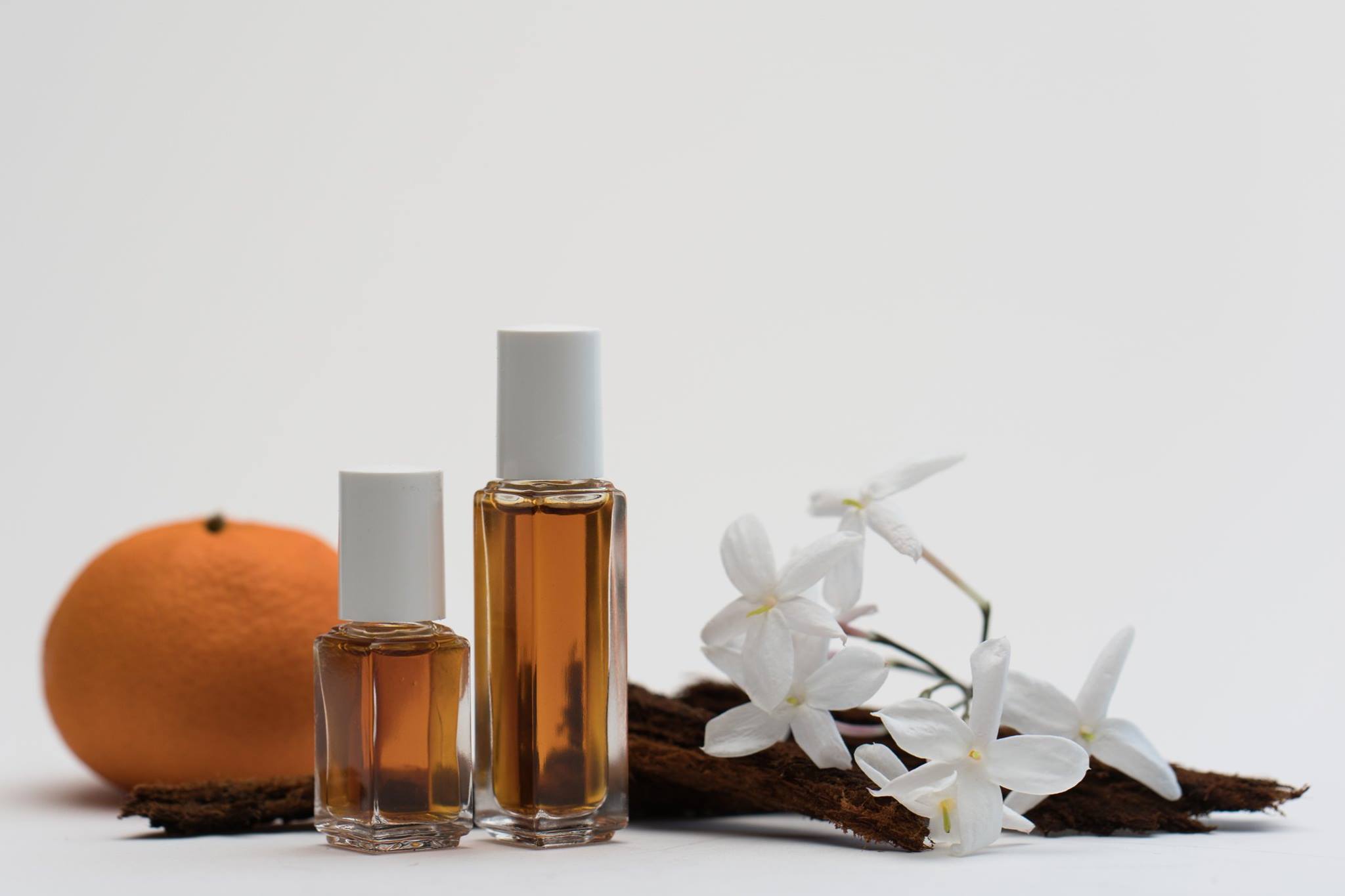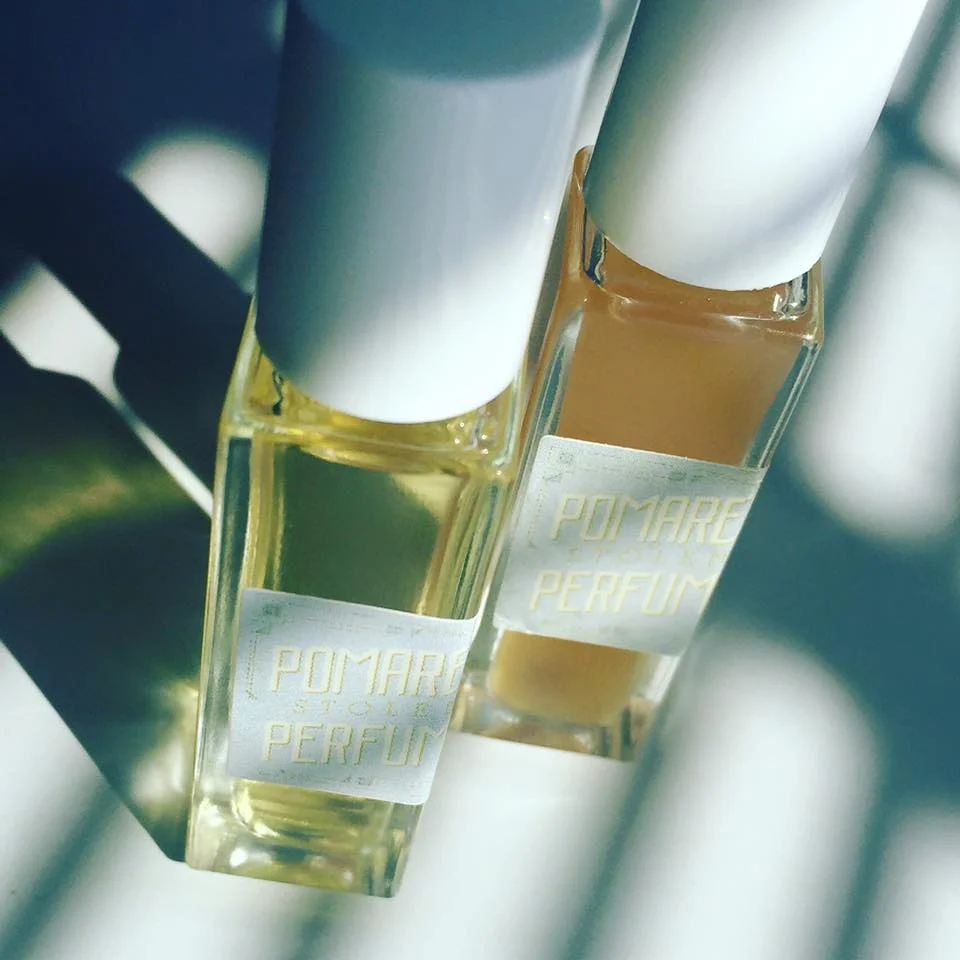Rachel Deane Binder
Rachel what is your background?
I have been a professional actor for most of my adult life, working both in theatre and film. I was fortunate to study with a grand dame of the theatre, Salome Jens, for a number of years and a great deal of that training is known as Sensory Work. While most of that work isn't of olfactory origin, she did help shift me as an artist to one who lives through the experience of the senses and to try to approach that experience (that scent, that damp heat, that cool breeze…) as if for the very first time. This is so key as a natural perfumer because materials can change from season to season and you really have to be open to that and to smell something new.
Was fragrance a large part of your life growing up?
I moved a great deal when I was a kid and even when we did settle down in Northern Maine, we spent our summers in California. What could never be taken away was the olfactory imprint of each locale: the honeysuckle and near wet heat of Richmond, the smell of ripping into sourdough bread on the beach in Bodega Bay, the muddy smell of spring wildflowers and first grass in Northern Maine or the pungent seaweed smell of Bar Harbor. When I was older and was finally able to travel to Southern France, someone told me to pick out any perfume I wanted. I was shocked at how many scents smelled plastic to me since I didn’t yet understand that they were all synthetic. Even when I was a teenager I would make my own concoctions out of oils and I recall wondering if I could track down a “higher quality” sandalwood, so there were signs along the way that scent might be my calling.
What are some of the projects that you are involved in?
I do try and take part in any activities put on by the Institute for Art and Olfaction, but I just had a baby so I have missed out on quite a lot of great stuff.
What is your favorite scent or note to use in perfume making?
I think white florals are grossly misunderstood! A synthetic white floral is inevitably very“pretty” but reveals none of the ripe or dirty qualities that make them so incredible. I think it will take a lifetime trying to begin to express the underbelly of a gardenia. I don’t think it is the job of an artist to get anything perfect, but to lead with questions. I have a lot of questions about the ‘ugly’ side of white flowers which helps unpack all that we love about them.
Did you receive training in fragrance?
I am a huge fan of Mandy Aftel and wanted so much to study with her, but she also expresses in her books how akin self-study is the perfumery. I decided to put all the extra money I had on materials to study on my own and have been exploring ever since.
How did the idea of your current project start and what are it’s inspirations?
Pomare IV was the last quote; Queen of Tahiti and when I was little my mother told all sorts of stories about her (my alleged great great great grandmother) and how France stole Tahiti from us. In my family we never let the truth get in the way of a good story and in one of my favorite tales she got sent out to sea with her lover just before a storm hit. The French had sabotaged her boat in an effort to assassinate her knowing they're so was easier to control due to his weakness for cognac. While this is pure fiction, it was one of those family legends that I took very seriously and imagined over and over. The truth as I now understand it is far from that tale. We do know that Pomare fought against the French intervention of Tahiti wholeheartedly and exiled herself to Raiatea in protest. The name “Pomare’s Stolen Perfume” represents the French ‘stealing’ of Tahiti and the surrounding islands, but it also speaks to all that can never be stolen. There are flowers and plants that grow in Raiatea that no matter how botanists try, cannot grow anywhere else. The name came to represent to me all that became stolen during colonization for Tahitians and for all first nation peoples. The history of perfume is irrevocably intertwined with our human history and that of this earth. Often when I think of the plants, resins, and flowers that make up beautiful scents, I think of how these things traveled around the world and changed our natural landscapes. Eucalyptus, which will always remind me of coastal Santa Barbara, is actually an Australian native. Vanilla, often associated with Tahiti, is in fact from Mexico. As a natural perfumer, I like to explore the origins of where we came from, including a sensorial exploration of cultures, peoples, and plants.
Yoga, does it affect your fragrance work in any form?
In some regard it does- a person who wears a truly natural and elegant scent should be able to wear it at any time regardless of how active their lifestyle. Perfume shouldn’t be so “loud” that it enters the room before you do. Also living at the beach, I wanted to create something you could equally wear after surfing or doing yoga as you could for a nice meal out. I also think that carrying a natural scent around with you and re-applying it throughout the day creates a sensorial opportunity to take a moment for yourself and be present. Whose day isn’t made better by the smell of real jasmine for stress reduction and euphoria?
What are your thoughts on creative works and following your dreams?
I think that following your bliss needs to be central to a creative drive, but it needs to be balanced with the courage to face the unknown along with your own fears.
Do you have any other things that you would like to share?
I was truly inspired by all of the artists at this year’s AIX Scent Fair at The Hammer here in LA-both by the incredible unique voices that are emerging from the niche perfume world, and by their kind inclusiveness and camaraderie.





